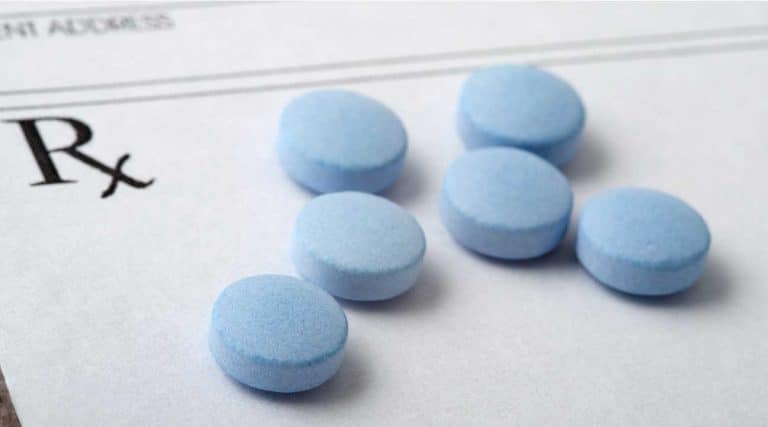Prescription Stimulant Abuse & Addiction | Types, Side Effects, & Treatment Options
- Adderall
- Vyvanse
- Ritalin
- Concerta
- Side Effects Of Stimulants
- Stimulant Abuse & Addiction
- Stimulant Overdose
- Stimulant Withdrawal Symptoms
- Stimulant Addiction Treatment

Prescription stimulants can help people with attention deficit hyperactivity disorder (ADHD) pay attention, focus, and control problematic behavior. They can also help people who have narcolepsy (a sleep disorder that causes frequent drowsiness) stay awake.
However, when they’re not taken exactly as prescribed, they can lead to addiction. If you or a loved one struggles with prescription stimulant abuse, consider professional addiction treatment.
What Are Prescription Stimulants?
Prescription stimulants are drugs that increase the brain’s level of dopamine and norepinephrine. These neurotransmitters (brain chemicals) help regulate your attentiveness, focus, memory, motivation, and sleep.
Some of the most common prescription stimulants include Dexedrine, Adderall, Vyvanse, ProCentra, Ritalin, Concerta, and Desoxyn.
Dexedrine
Dexedrine is the brand name for a central nervous system (CNS) stimulant called dextroamphetamine. It’s used to treat ADHD and narcolepsy in children and adults.
It comes in short-acting tablets, which are taken two to three times a day, and long-acting tablets, which are taken once a day in the morning.
Learn more about Dexedrine Abuse and Addiction
Adderall
Adderall consists of dextroamphetamine along with another CNS stimulant called amphetamine. Like Dexedrine, it treats ADHD and narcolepsy.
It’s available in immediate release tablets, which are taken two or three times a day, and extended release capsules, which are taken once or twice a day.
Learn more about Adderall Abuse & Addiction
Vyvanse
Vyvanse is the brand name for a CNS stimulant called lisdexamfetamine, which the body converts to dextroamphetamine. It’s used to treat ADHD as well as binge eating disorder. Unlike most prescription stimulants, it’s not a popular treatment option for narcolepsy.
It’s available as a chewable tablet, swallowable capsule, and a powder that can be mixed with water, orange juice, or yogurt.
Learn more about Vyvanse Abuse and Addiction
Ritalin
Ritalin is a brand-name version of a CNS stimulant called methylphenidate. Used to treat ADHD and narcolepsy, it comes in a short-acting tablet that’s typically taken two to three times a day.
Learn more about Ritalin Abuse & Addiction
Concerta
Concerta is another brand-name version of methylphenidate that treats ADHD and narcolepsy. Unlike Ritalin, Concerta is long-acting, which means it provides steady, all-day symptom relief rather than immediate, short-term relief. It’s usually taken once a day.
Learn more about Concerta Abuse And Addiction
Desoxyn
Desoxyn is the brand name for a CNS stimulant called methamphetamine. It can treat ADHD, obesity, and, less commonly, narcolepsy. It comes in an immediate-release tablet that’s taken once or twice a day.
Learn more about Desoxyn Abuse And Addiction
Side Effects Of Prescription Stimulants
No matter which prescription stimulant you take, you may experience side effects such as:
- nausea
- vomiting
- dry mouth
- stomach upset
- diarrhea
- dizziness
- trouble sleeping
- headache
- loss of appetite
- weight loss
- sweating
- irritability
- nervousness
- restlessness
Prescription Stimulant Abuse
Prescription stimulant abuse occurs when you don’t follow your doctor’s instructions for taking a stimulant.
For instance, you may take a higher dose than prescribed, take it more frequently than prescribed, take it in a manner not prescribed (such as crushing and snorting pills), or take it without a prescription.
People abuse stimulant medications to increase alertness, focus, energy, and confidence.
Stimulant misuse is most common among:
- high school and college students who want to boost their academic performance (prescription stimulants are often called “study drugs”)
- athletes who want to boost their energy and physical performance
- people who want to boost productivity at work
- people with eating disorders, as stimulant drugs can suppress appetite and promote weight loss
- people with substance use disorders, such as alcohol use disorder or marijuana use disorder
Signs Of Prescription Stimulant Addiction
Misusing prescription stimulants can eventually lead to addiction, also called substance use disorder (SUD). Addicted individuals develop a tolerance to the drug, which means they need higher and higher doses over time to feel the same effects they once felt at lower doses.
Signs of prescription stimulant addiction include:
- avoiding personal and professional responsibilities to spend more time getting and using the drug
- withdrawing from family and friends
- needing the drug to complete work, school, or other important tasks
- wanting to quit the drug but feeling unable to
- spending lots of money on the drug
- neglecting personal hygiene
- visiting multiple doctors to get multiple prescriptions of the drug (“doctor shopping”)
- having trouble sleeping
Can You Overdose On Prescription Stimulants?
If you take too much of a prescription stimulant, take it too frequently, or mix it with other substances such as alcohol, you may overdose.
Signs of overdose may include:
- confusion
- anger or aggression
- panic
- rapid breathing
- increased heart rate/irregular heartbeat
- increased body temperature
- restlessness
- nausea or vomiting
- abdominal pain
- tremors
- psychosis
- convulsions
If you or someone you know experiences these symptoms, call for emergency health services immediately. When left untreated, an overdose can result in heart attack, coma, or death.
Prescription Stimulant Withdrawal Symptoms
Even if you take a stimulant exactly as prescribed, your body may start depending on it to function normally, especially if you’ve been taking it for a long time or at high doses.
If you try to stop taking it cold turkey, you may experience withdrawal symptoms such as:
- depression
- anxiety
- fatigue
- intense mood swings
- chills
- body aches
- trouble sleeping
- psychosis
To avoid these symptoms, consult a doctor before you attempt to quit. The doctor will gradually reduce your dosage in a process called tapering. Tapering reduces the chance of withdrawal symptoms because it doesn’t shock your body like quitting cold turkey does.
Stimulant Addiction Treatment Options
Recovering from prescription drug abuse can be just as difficult as recovering from illegal drug abuse. That’s why people who misuse prescription stimulants should attend substance abuse treatment programs.
At these programs, medical professionals help patients gradually taper off of stimulants so they can reduce withdrawal symptoms and get their lives back.
The programs also offer a variety of therapies to make recovery easier, such as cognitive-behavioral therapy.
In this form of counseling, a mental health professional works with you or a loved one to identify unhelpful thought patterns and develop healthy coping skills, like meditation, exercise, yoga, and journaling.
In addition, patients can connect with others who face similar challenges in group therapy. Group therapy sessions, which are run by licensed therapists, can help you feel less alone and more hopeful.
If you or someone you love is struggling with prescription stimulant abuse or addiction, contact an Ark Behavioral Health specialist to learn more about our treatment programs.
Written by Ark Behavioral Health Editorial Team
©2024 Ark National Holdings, LLC. | All Rights Reserved.
This page does not provide medical advice.
National Institute on Drug Abuse - Prescription Stimulants DrugFacts
U.S. National Library of Medicine: Experimental and Clinical Psychopharmacology - Prescription Stimulant Medication Misuse: Where Are We and Where Do We Go from Here?


Questions About Treatment?
Ark Behavioral Health offers 100% confidential substance abuse assessment and treatment placement tailored to your individual needs. Achieve long-term recovery.
100% confidential. We respect your privacy.
Prefer Texting?
Our friendly support team is here to chat 24/7. Opt out any time.







 Learn More
Learn More








